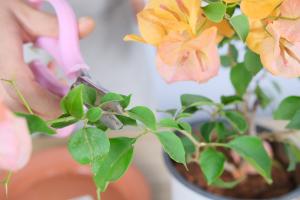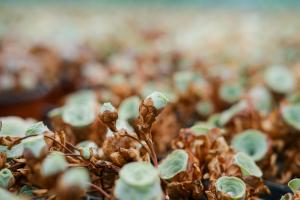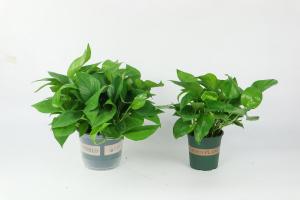How to Grow Potted Basil Plant Indoors
Basil is known for its fresh flavor and as an essential ingredient in many recipes. Growing this herb indoors is a simple way to always have it at your disposal, fresh and ready to use. Here’s how to grow potted basil plant indoors.
Choose a Potting Container
The first step is to choose the right container. You will need a pot that is at least 6 inches deep and wide, with good drainage. You can pick any material that you prefer, but clay pots are particularly good as they absorb excess moisture from the soil.
Light and Temperature
Basil prefers a warm and sunny environment. Place your pot in a spot that has at least 6 hours of direct sunlight each day. The ideal temperature for basil is around 70-80°F (21-27°C).
Soil and Watering
Basil thrives in well-draining soil. You can mix equal parts of potting soil, sand, and compost to create the ideal soil mix. The soil should be moist but not waterlogged. Water your basil plant once the top of the soil is dry to the touch.
Fertilizing
Regular fertilization can help your basil plant grow bigger, stronger, and tastier. You can use a balanced fertilizer once a month to feed the plant. Alternatively, many gardeners recommend adding a teaspoon of fish emulsion to the soil once a week.
Pruning
Pruning is an essential step when growing basil as it encourages bushier growth and ensures a constant supply of fresh leaves. Pinch off the top two sets of leaves once the plant has grown six sets of leaves. You can then continue pinching off the top leaves every few weeks.
Pests and Diseases
Basil plants can be susceptible to pests such as aphids, spider mites, or whiteflies. Always check the leaves for any signs of infestation and remove infected leaves immediately. You can use a simple homemade insecticide spray made with dish soap and water to deter pests.
Basil is also prone to fungal diseases such as powdery mildew or downy mildew. To prevent these diseases, avoid overwatering and ensure proper air circulation around the plant.
Harvesting and Using
You can start harvesting basil leaves once the plant has grown 6-8 sets of leaves. Harvest leaves from the top of the plant to encourage bushier growth. Always leave a few sets of leaves on the stem to ensure the plant continues to grow.
Basil leaves can be used fresh in many recipes, or dried for later use. You can also make basil pesto or infused oils to add flavor to your dishes.
Conclusion
Growing potted basil plant indoors is an easy and rewarding way to always have this delicious herb at hand. By following these simple steps, you can ensure a healthy and productive plant that will provide fresh and flavorful leaves for many meals to come.

 how many times do yo...
how many times do yo... how many planted tre...
how many planted tre... how many pine trees ...
how many pine trees ... how many pecan trees...
how many pecan trees... how many plants comp...
how many plants comp... how many plants can ...
how many plants can ... how many plants and ...
how many plants and ... how many pepper plan...
how many pepper plan...































